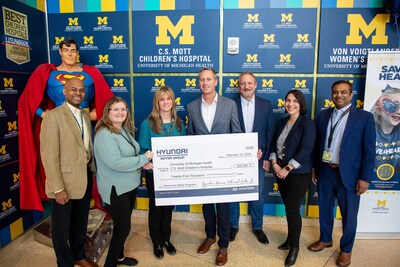MUMBAI, India, February 16, 2026 /3BL/ – Medtronic, a global leader in healthcare technology, has today launched the #DecodeYourRhythm campaign in India, a nationwide initiative to raise awareness about bradycardia, a type of arrhythmia in which the heart beats slower than normal. The campaign aims to help patients, caregivers and healthcare professionals recognise early warning signs and take timely action.
Bradycardia occurs when the heart beats fewer than 60 times per minute at rest. While some people may not notice any symptoms, a very slow heart rate can reduce the heart’s ability to supply oxygen-rich blood to the body, leading to dizziness, fatigue, weakness or shortness of breath. Understanding these signs is critical, as early recognition can make a significant difference in managing heart health.
To communicate this effectively, the campaign is anchored by a new film set during a “Spell Right Championship” in a lively housing society courtyard. When a participant is asked to spell “Bradycardia,” the term is explained as an abnormally slow heart rate. The scene then highlights common warning signs, showing how everyday experiences can provide early clues about heart health. By combining light-hearted storytelling with clear educational messages, the film makes complex medical information both engaging and actionable.
Commenting on the initiative, Chandra Shekhar Jaiman, Senior Director Cardiovascular, Medtronic India, said, “ Many people living with heart rhythm disorders like bradycardia may miss the early signs, often thinking symptoms are simply tiredness, stress, or age-related changes. In India, limited awareness means these conditions often go unnoticed, impacting lives silently.
Through our #DecodeYourRhythm public awareness initiative, we encourage everyone to recognize symptoms early, feel confident seeking medical care, and learn that advanced treatment options are available. Guided by our Medtronic mission to alleviate pain, restore health, and extend life, we are committed to empowering patients to take proactive steps for better heart health.”
The campaign also highlights advanced pacing solutions such as leadless pacemakers, which deliver targeted electrical signals to the heart only when needed, improving outcomes for suitable patients. Leadless pacemakers are smaller, self-contained devices placed directly inside the heart. They don’t require surgical pockets or leads, which can reduce complications and shorten recovery time.1 The campaign highlights the need for patients to talk to their doctors about the benefits and risks of these advanced pacing solutions.
By combining engaging storytelling, practical guidance, and innovative treatment options, the #DecodeYourRhythm campaign emphasises the importance of early detection of heart rhythm disorders and encourages proactive care across India.
For further information, please contact:
Medtronic
Nidhi Acharya
Nidhi.Acharya@medtronic.com
About Medtronic
Bold thinking. Bolder actions. We are Medtronic. Medtronic plc, headquartered in Galway, Ireland, is the leading global healthcare technology company that boldly attacks the most challenging health problems facing humanity by searching out and finding solutions. Our Mission — to alleviate pain, restore health, and extend life — unites a global team of 95,000+ passionate people across more than 150 countries. Our technologies and therapies treat 70 health conditions and include cardiac devices, surgical robotics, insulin pumps, surgical tools, patient monitoring systems, and more. Powered by our diverse knowledge, insatiable curiosity, and desire to help all those who need it, we deliver innovative technologies that transform the lives of two people every second, every hour, every day. Expect more from us as we empower insight-driven care, experiences that put people first, and better outcomes for our world. In everything we do, we are engineering the extraordinary. For more information on Medtronic, visit www.Medtronic.com and follow Medtronic on LinkedIn.
Any forward-looking statements are subject to risks and uncertainties such as those described in Medtronic’s periodic reports on file with the Securities and Exchange Commission. Actual results may differ materially from anticipated results. This campaign is educational in nature and does not promote or recommend any specific medical device or therapy. All details contained in this release are for general awareness purposes only.
1Leadless Pacemaker
Available from: https://pmc.ncbi.nlm.nih.gov/articles/PMC11958420/
Curr Cardiol Rep
2025 Mar 31;27(1):77. doi: 10.1007/s11886-025-02228-5
References
1 . Kusumoto, F. M., Schoenfeld, M. H., Barrett, C., Edgerton, J. R., Ellenbogen, K. A., Gold, M. R., Goldschlager, N. F., Hamilton, R. M., Joglar, J. A., Kim, R. J., Lee, R., Marine, J. E., McLeod, C. J., Oken, K. R., Patton, K. K., Pellegrini, C. N., Selzman, K. A., Thompson, A., & Varosy, P. D. (2019). 2018 ACC/AHA/HRS Guideline on the Evaluation and Management of Patients With Bradycardia and Cardiac Conduction Delay: A Report of the American College of Cardiology/American Heart Association Task Force on Clinical Practice Guidelines and the Heart Rhythm Society. Circulation, 140(8), e382–e482. https://doi.org/10.1161/CIR.0000000000000628
2. Sidhu, S., & Marine, J. E. (2020). Evaluating and managing bradycardia. Trends in cardiovascular medicine, 30(5), 265–272. https://doi.org/10.1016/j.tcm.2019.07.001
3. Shrivastav, M., Shrivastav, R., Makkar, J., & Biffi, M. (2013). Patient selection for ambulatory cardiac monitoring in the Indian healthcare environment. Heart Asia, 5(1), 112–119. https://doi.org/10.1136/heartasia-2012-010228








